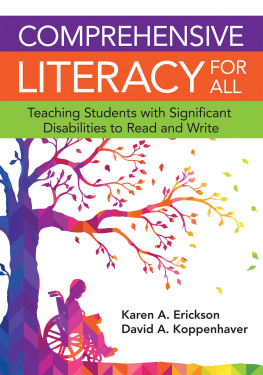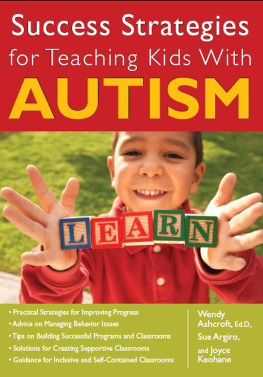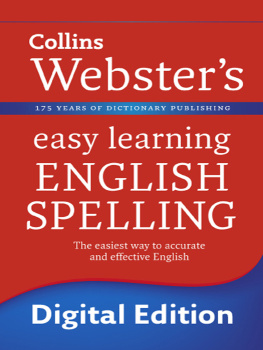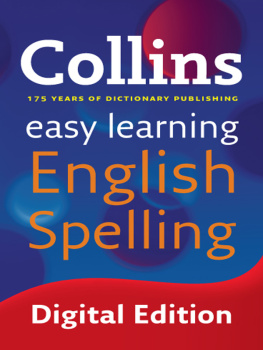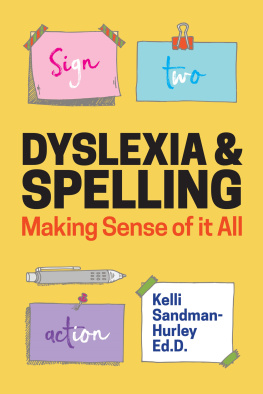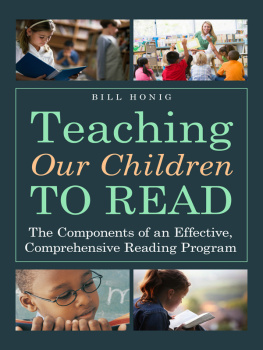Peter Westwood - Teaching Spelling: Exploring commonsense strategies and best practices
Here you can read online Peter Westwood - Teaching Spelling: Exploring commonsense strategies and best practices full text of the book (entire story) in english for free. Download pdf and epub, get meaning, cover and reviews about this ebook. year: 2014, publisher: Routledge, genre: Children. Description of the work, (preface) as well as reviews are available. Best literature library LitArk.com created for fans of good reading and offers a wide selection of genres:
Romance novel
Science fiction
Adventure
Detective
Science
History
Home and family
Prose
Art
Politics
Computer
Non-fiction
Religion
Business
Children
Humor
Choose a favorite category and find really read worthwhile books. Enjoy immersion in the world of imagination, feel the emotions of the characters or learn something new for yourself, make an fascinating discovery.
- Book:Teaching Spelling: Exploring commonsense strategies and best practices
- Author:
- Publisher:Routledge
- Genre:
- Year:2014
- Rating:4 / 5
- Favourites:Add to favourites
- Your mark:
Teaching Spelling: Exploring commonsense strategies and best practices: summary, description and annotation
We offer to read an annotation, description, summary or preface (depends on what the author of the book "Teaching Spelling: Exploring commonsense strategies and best practices" wrote himself). If you haven't found the necessary information about the book — write in the comments, we will try to find it.
Teaching Spelling: Exploring commonsense strategies and best practices equips teachers with the vital knowledge and skills needed to help their students become proficient writers and spellers.
Peter Westwood provides a very clear and concise account of the important skills and processes that underpin accurate spelling, and describes in very practical terms, many evidence-based strategies and methods that teachers can use to help all students become confident, capable and independent spellers. The book also addresses the purposes of various forms of assessment of spelling skills, to guide teaching and planning.
Chapters in this accessible and timely text include:
- the importance of correct spelling
- visual, auditory and cognitive components of spelling ability
- general principles for planning instruction
- proven teaching strategies and methods
- word study as a teaching approach
- formal and informal assessment
At the end of each chapter the author provides a list of online and print resources, thus enabling readers to extend their knowledge in the various topics. The extensive reference list is also an invaluable source of information on recent research and thinking on the topic of spelling instruction.
Teaching Spelling: Exploring commonsense strategies and best practices is an essential resource for all those in teacher education and taking in-service courses.
Peter Westwood: author's other books
Who wrote Teaching Spelling: Exploring commonsense strategies and best practices? Find out the surname, the name of the author of the book and a list of all author's works by series.


